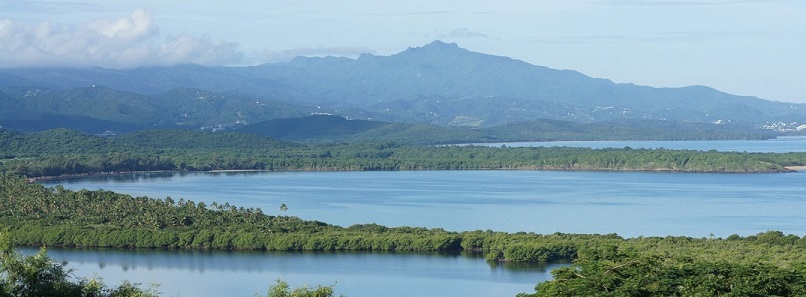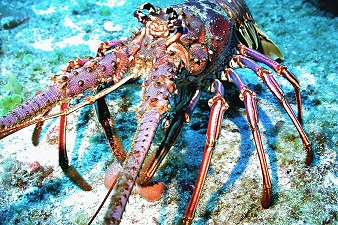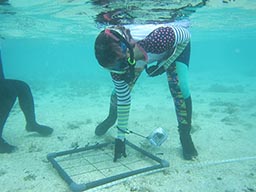- ABOUT US
- PROGRAM AREAS
- CONSERVATION APPROACH
- EDUCATION
- MULTIMEDIA
- Most of the fishers consider themselves full-time commercial fishers instead of part-time or recreational fishers.
- They highlight spiny lobster, queen conch, and multiple species of fish, including king mackerel, as important fisheries.
- A majority of the fishers believe that the climate is changing in Puerto Rico, and they are concerned.
- Fishers already attribute changes in their practices, such as adjusting where they fish and the gear they use, to climate change.
- Most of the surveyed fishers feel that the species they fish are affected by pollution, coral bleaching, and increasing ocean temperatures.
- Most fishers want to work with the government to manage coral reef fisheries, but they do not see a way to do so.
A Changing Climate through a Fisher’s Eye

Like coral reefs worldwide, coral ecosystems in Puerto Rico are experiencing increased pressures from a changing climate. Rising ocean temperatures lead to more coral bleaching events and death, and these losses would be devastating for Puerto Rican fishers and their communities that have relied on coral reefs and fisheries as sources of food and income for generations. These fishers have an interest in conserving coral reefs and are at the front lines of the changing environment.
In 2016, the NOAA Coral Reef Conservation Program awarded funding to the University of New Haven to assess the socioeconomic impacts of climate change on Puerto Rico’s coral reef fisheries. The research team, led by Dr. Tarsila Seara, surveyed over 200 local fishers across the island and gathered the following information.

The results of the survey show that Puerto Rican fishers are passionate about their work, concerned about the effects of climate change on coral reefs and related fisheries, and ready to work with others to find solutions. Overall, the study provides important insight into the role that local fishers can play in comprehensive coral reef management.
For more information on the NOAA Coral Reef Conservation Program’s funding opportunities, visit https://coralreef.noaa.gov/conservation/funding_welcome.html.
About Us

The NOAA Coral Reef Conservation Program was established in 2000 by the Coral Reef Conservation Act. Headquartered in Silver Spring, Maryland, the program is part of NOAA's Office for Coastal Management.

The Coral Reef Information System (CoRIS) is the program's information portal that provides access to NOAA coral reef data and products.
Work With US
U.S. Coral Reef Task Force
Funding Opportunities
Employment
Fellowship Program
Contracting Assistance
Graphic Identifier
Featured Stories Archive

Access the archive of featured stories here...
Feedback
Thank you for visiting NOAA’s Coral Reef Conservation Program online. Please take our website satisfaction survey. We welcome your ideas, comments, and feedback. Questions? Email coralreef@noaa.gov.
Stay Connected
Contact Us
NOAA’s Coral Reef Conservation Program
SSMC4, 10th Floor
1305 East West Highway
Silver Spring, MD 20910
coralreef@noaa.gov
